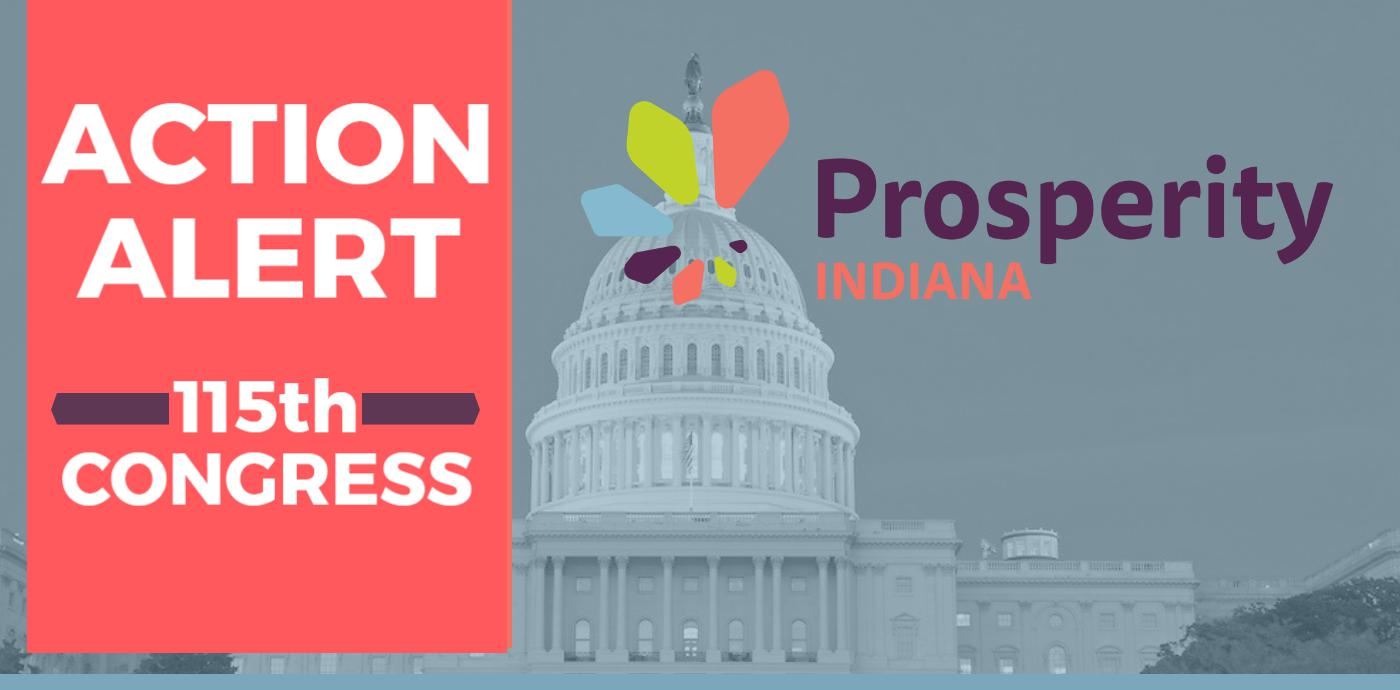
Thanks to advocacy pressure from you (
https://www.prosperityindiana.org/Blog/6242798) and housing and community development proponents around the country, Congress rejected the Administration's effort to rescind $15 billion in previously approved federal funding. Those cuts included $39 million from the U.S. Department of Housing and Urban Development’s Public Housing Capital Fund, $40 million from the U.S. Department of Agriculture’s Rental Assistance Program, as well as $164 million from the U.S. Department of Treasury’s Community Development Financial Institution Fund (CDFI) programs.
These programs help ensure Hoosiers have access to safe, affordable housing and spur community development investments. While it passed the House on June 6, by a close vote of 210 - 206, the Senate voted down the measure by a vote of 48-50 on Wednesday. Senator Young (R-IN) voted to approve the measure and Senator Donnelly (D-IN) opposed it. To see how your Representative voted, click here.
Below is our action alert text addressing the impact this bill would have had on Prosperity Indiana' members and the Hoosiers served by them:
Dear Member,
As a Prosperity Indiana member dedicated to expanding affordable housing access and strengthening our communities, I urge you to oppose harmful rescissions contained in H.R. 3, the Spending Cuts to Expired and Unnecessary Programs Act. Contrary to the bill's title, the legislation would rescind significant resources needed to improve living conditions for low-income Hoosiers and increase investment in distressed communities.
Specifically, H.R. 3 would rescind $39 million from the U.S. Department of Housing and Urban Development's (HUD) Public Housing Capital Fund Program, $40 million from U.S. Department of Agriculture's (USDA) Rental Assistance Program, as well as $164 million from the U.S. Department of Treasury's Community Development Financial Institution Fund (CDFI) programs.
HUD:
The Public Housing Capital Fund enables Public Housing Authorities (PHAs) to maintain safe, sanitary living conditions for residents. These resources are used for roof repairs, maintaining heating and air conditioning systems, and removing hazards such as lead paint. Unfortunately, appropriations have not kept pace with the urgent need. A 2010 HUD study estimated the backlog on deferred maintenance on public housing was $26 billion, and was expected to grow by $3.4 billion per year. That would put the current backlog at more than $50 billion. Unobligated resources in this fund do not reflect a surplus. To the contrary, these funds are unobligated because PHAs often do not receive enough in one year's allocation to make larger repairs and have to save their annual funding for several years before signing contracts which lengthens the process. Cutting these resources only serves to further jeopardize the health and safety of public housing residents across our state.
USDA:
USDA's Rental Assistance Program is critical to community stability, providing funding to help low-income households in rural areas access housing stability through public-private partnerships with landlords. Without these funds, many families would be homeless. Short-term funding via continuing resolutions made it difficult to renew contracts and the funds targeted in this bill were intended to ensure there are no shortfalls in fulfilling those existing obligations that would be harmful to housing providers and low-income Hoosiers alike.
Treasury:
Proposed rescissions also include $151 million from the Capital Magnet Fund, resources that were only made available on May 1 of this year, and $22 million from the Bank Enterprise Award Program. These programs attract private capital to support organizations that increase the availability and affordability of housing and improve access to financial services in divested communities.
When you consider that thirty-one percent of households in Indiana are renters and nearly half are cost-burdened already, it is clear we simply cannot afford to cut programs that provide critical housing assistance and incentivize investments in low-income communities. I urge you to oppose this measure.

